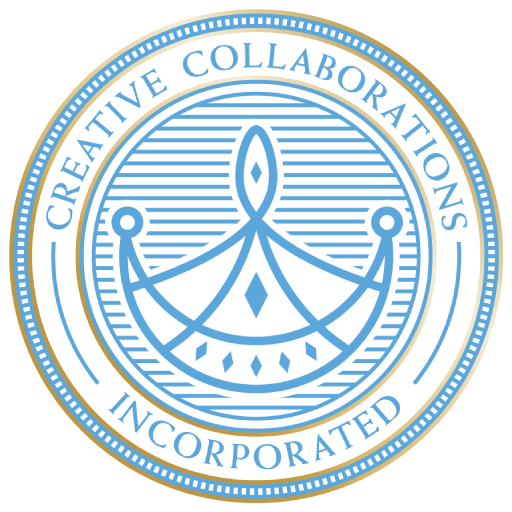When it comes to brand strategy and consumer outreach, a specific category of marketing jobs stands out—those that require you to be the face of the brand. These roles don’t just rely on creativity or analytical skills; they depend heavily on personal presence, charisma, and interpersonal influence. Although digital methods remain integral, some companies still prioritize human connection as a key driver for growth, especially in industries where trust, recognition, and relatability are core to the customer experience.
A direct marketing career path that positions professionals as brand ambassadors combines public-facing responsibilities with strategic messaging. These positions are not for the shy or reserved. Instead, they’re ideal for outgoing individuals who flourish in engagement, visibility, and creating memorable interactions. This article will look at different roles where being the face of the brand is central, what these jobs entail, and how to succeed in them.
What It Means to Be the Face of the Brand
Being the face of the brand involves more than appearing in advertisements or public events. It means embodying the brand’s values, mission, and style in every interaction—whether in person, online, or on stage. People in these roles serve as the physical and emotional bridge between the company and its target audience.
They often represent the company at trade shows, community events, digital campaigns, and sometimes even in media interviews. These professionals must maintain consistent messaging, a polished appearance, and high emotional intelligence.
Characteristics of Brand-Facing Marketing Roles
- Strong Communication Skills: Verbal articulation, active listening, and emotional resonance are key.
- Confidence Under Pressure: You’ll often speak on behalf of the company in unpredictable environments.
- Adaptability: When speaking to corporate executives or retail customers, you must easily shift tone and approach.
- Public Speaking Ability: These jobs frequently require formal presentations and casual speaking engagements.
- Emotional Intelligence: Reading the room and responding appropriately can make or break a live brand moment.
Types of Marketing Jobs That Require Public Representation
1. Brand Ambassador
This is the most literal example of someone who serves as the face of the brand. Often hired for promotional events or long-term partnerships, these individuals are responsible for spreading positive word-of-mouth and creating personal connections with the audience.
Duties Include:
- Attending marketing activations and community events
- Distributing product samples and brochures
- Answering questions about the brand’s mission or offerings
- Encouraging social media engagement and user-generated content
These roles are a staple in industries such as fashion, food and beverage, fitness, and tech.
2. Trade Show Representative
In B2B or B2C, trade shows are key to visibility and lead generation. Marketing professionals who staff booths or do demos at these events must project authority and approachability.
Key Tasks:
- Hosting product demonstrations
- Pitching to potential partners or clients
- Managing live Q&A sessions
- Collecting and inputting lead information
A successful trade show representative understands the product, engages an audience, and makes a lasting impression in a crowded environment.
3. Experiential Marketing Coordinator
This role centers on designing and executing interactive experiences that emotionally connect consumers to the brand. While there’s a strong logistical component, experiential marketers often participate directly in the events they orchestrate.
Core Assignments:
- Setting up and managing live brand experiences
- Engaging with event attendees
- Capturing consumer feedback on the spot
- Representing the company in a high-energy, engaging manner
From pop-up shops to immersive art installations, experiential campaigns depend on personable professionals to bring them to life.
4. Influencer or Content Spokesperson
In many cases, companies now train internal team members or hire professionals to serve as content creators for their brand. Unlike traditional influencers who are external, these individuals are closely tied to brand strategy.
Common Deliverables:
- Hosting live streams, webinars, or podcasts
- Appearing in company-produced social media videos
- Writing blog posts or appearing in newsletters with a personal signature
- Becoming a go-to voice for audiences seeking authenticity
They must be relatable, credible, and consistent with the brand’s tone and values.
5. Field Marketing Representative
Field marketers operate in specific geographic territories and meet with potential customers or partners face-to-face. They serve as the brand’s eyes, ears, and mouth on the ground.
Roles & Responsibilities:
- Executing local marketing campaigns
- Building relationships with local businesses or influencers
- Representing the brand at community events
- Providing real-time feedback from prospects to HQ
The presence of a field marketing representative helps regionalize national campaigns and inject personal relevance into the brand’s broader messaging.
6. Corporate Spokesperson or PR Representative
More formal than other roles on this list, corporate spokespeople are responsible for representing the company to the media, investors, and key stakeholders.
Important Duties:
- Delivering press briefings or interviews
- Issuing statements in response to crisis situations
- Representing the brand in investor meetings or public forums
- Maintaining strict message discipline and professionalism
More often than not, these professionals undergo rigorous media training and are held to high standards of corporate communication.
Skills You Need to Succeed in Brand-Facing Roles
Excelling in public-facing marketing jobs requires a specific blend of hard and soft skills:
1. Presentation and Public Speaking
You must be comfortable addressing groups of all sizes, with or without scripts. Presentation skills affect formal events and casual interactions at booths, cafes, or networking mixers.
2. Storytelling
Marketing is fundamentally about storytelling. Those who can craft compelling narratives about the brand, especially in real time, stand out in crowded environments.
3. Product Expertise
To be a credible face of the brand, you need to know its offerings inside and out. Customers expect detailed, trustworthy answers from someone visibly associated with the company.
4. Conflict Resolution
Not every interaction will be smooth. From handling complaints at events to diffusing social media missteps in real time, the ability to manage conflict with grace is invaluable.
5. Social Media Fluency
Being the face of the brand increasingly means appearing on digital platforms. You should know how to speak to the camera, adapt to trending formats, and engage with followers appropriately.
How Companies Select the Right Faces for Their Brands
Brand visibility depends on alignment between personal traits and brand identity. Companies don’t just look for charismatic people—they seek representatives whose personal brand complements their corporate message.
Selection Factors Include:
- Alignment with brand values (e.g., eco-consciousness, innovation, elegance)
- Audience relatability
- Cultural awareness and diversity
- Professionalism and poise
- Existing social followings or on-camera experience
In many industries, particularly lifestyle and tech, companies may even host casting calls or open interviews to find the right brand representatives.
Challenges of Representing a Brand Publicly
While rewarding, these roles come with their own pressures and complexities.
- Pressure to Always Be “On”: Unlike back-office roles, your demeanor, appearance, and energy are constantly under scrutiny.
- Travel and Time Demands: Events, campaigns, and last-minute appearances are inevitable, which disrupt work-life balance.
- Reputation Management: A personal mistake, such as a poorly worded statement, can go viral and quickly impact the company’s image.
- Emotional Burnout Risk: Emotional labor can be draining, especially in high-volume and repetitive interactions.
- Performance Metrics: Your results—engagement, conversion, lead quality—are often tracked in real time.
Professionals in these roles need strong boundaries, stress management techniques, and a supportive team to avoid burnout and missteps.
Benefits of Being the Brand’s Face
Despite the challenges, there are distinct advantages:
- Career Acceleration: High visibility often leads to quicker recognition and advancement within the company.
- Networking Opportunities: Public-facing roles create frequent chances to connect with industry leaders, influencers, and potential clients.
- Creative Freedom: Many of these jobs allow plenty of room for personal flair and spontaneous storytelling.
- Personal Brand Building: You don’t just elevate the company—you often build a marketable persona that can outlast a single employer.
Industries Where These Jobs Are Thriving
The demand for brand-facing marketers spans many sectors:
- Technology: Product evangelists often become the faces of innovation.
- Fashion and Beauty: Relatable influencers and brand reps drive authenticity.
- Hospitality and Tourism: Travel brand ambassadors foster trust and excitement.
- Health and Wellness: Fitness coaches or wellness experts embody the brand promise.
- Finance and Fintech: Spokespeople simplify complex products and build trust.
The trend is even growing in traditionally conservative industries, as companies realize the value of humanizing their brand presence.
Main Takeaway
Marketing jobs that place you in the spotlight are ideal for extroverted, articulate individuals who flourish in engagement and performance. They demand a high level of personal accountability, quick thinking, and emotional resilience. However, for the right candidate, these roles are incredibly rewarding and can offer accelerated career growth, countless networking opportunities, and the chance to shape how the public experiences a brand.
Got What It Takes?
If you’re planning to pursue a career in marketing, Creative Collaborations is the best place to start honing the skills you need to represent a brand confidently. Whether you’re interested in event marketing, digital content creation, or public-facing brand strategy, joining a team that values authenticity, creativity, and connection will give you a competitive edge.
Apply now to become the face of something bigger than yourself!

